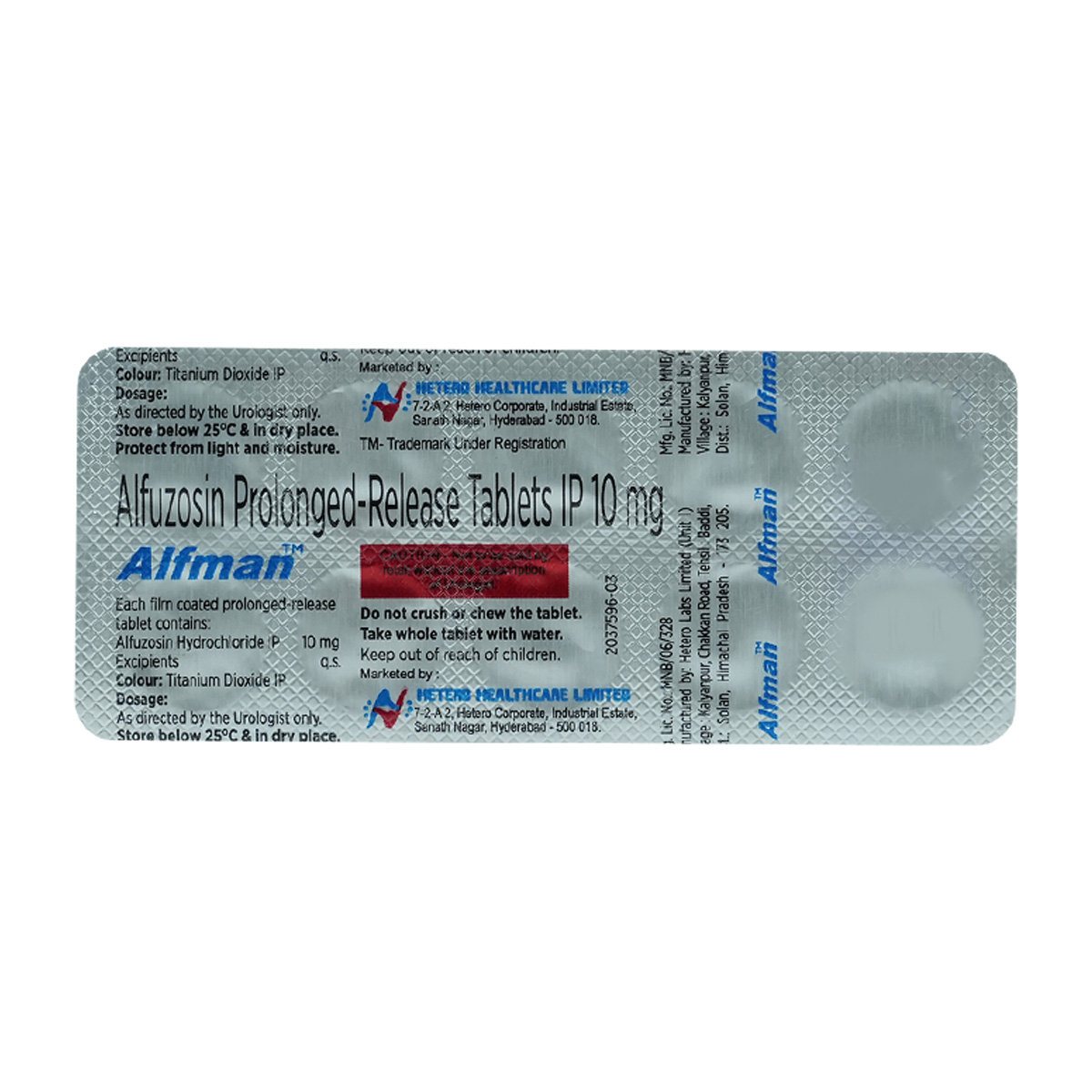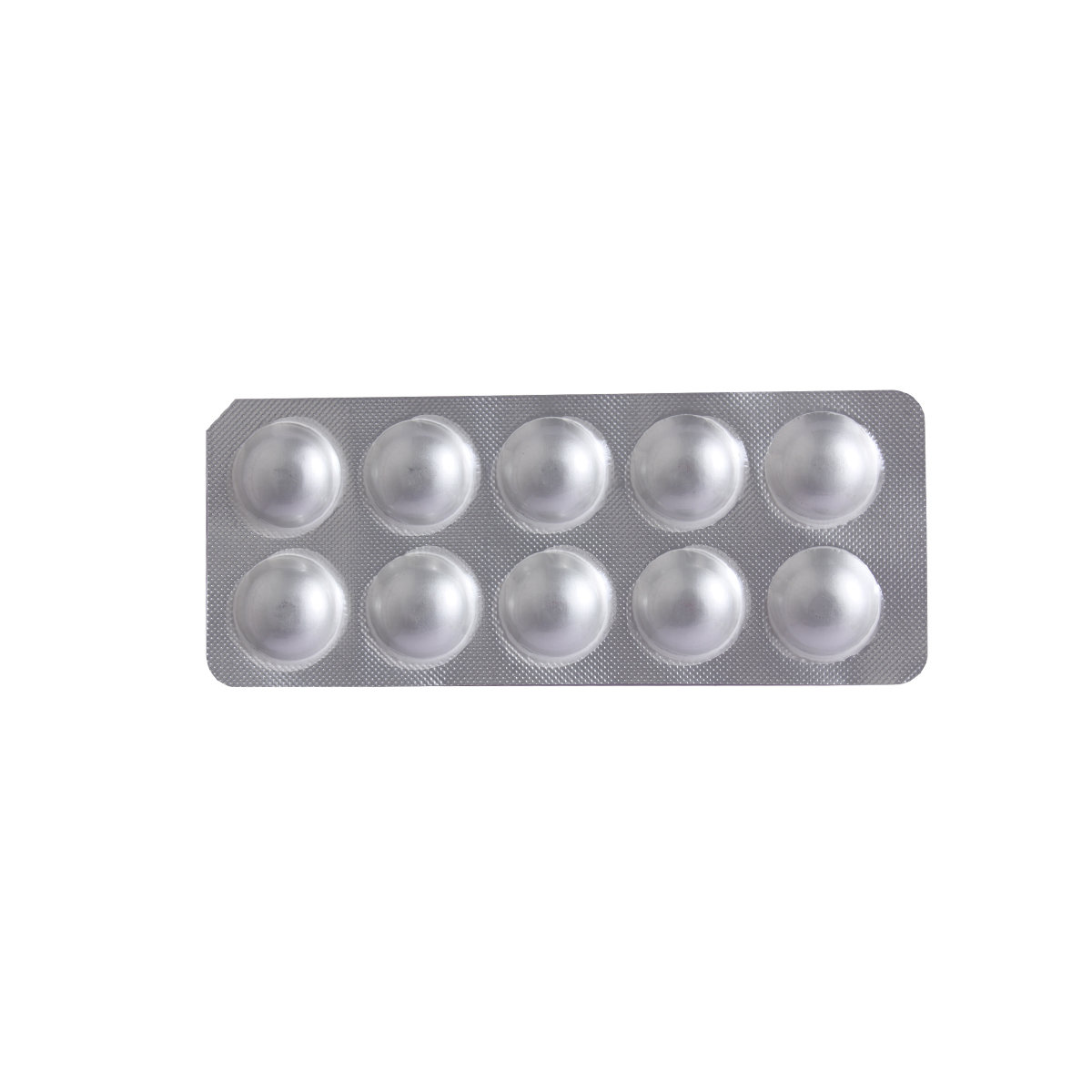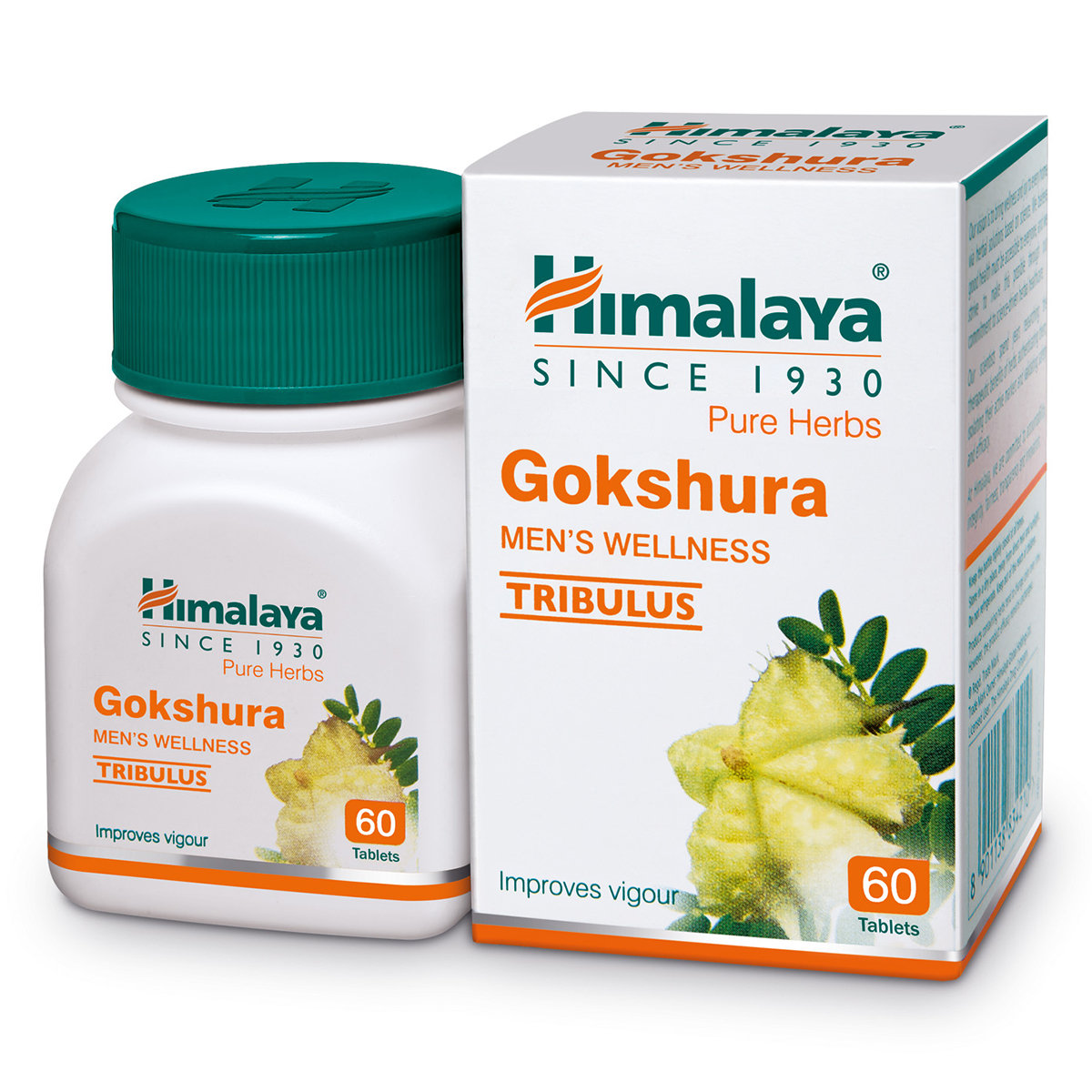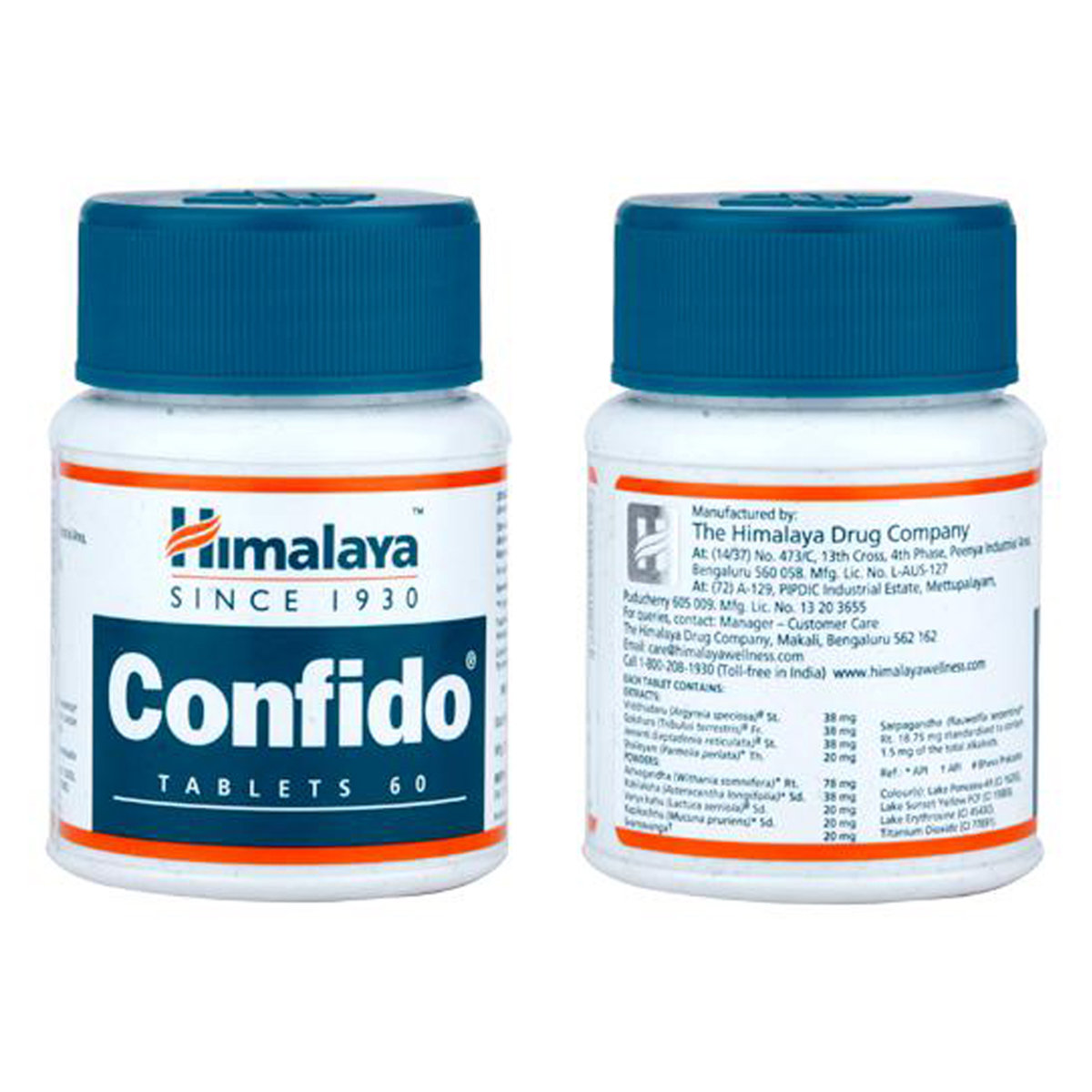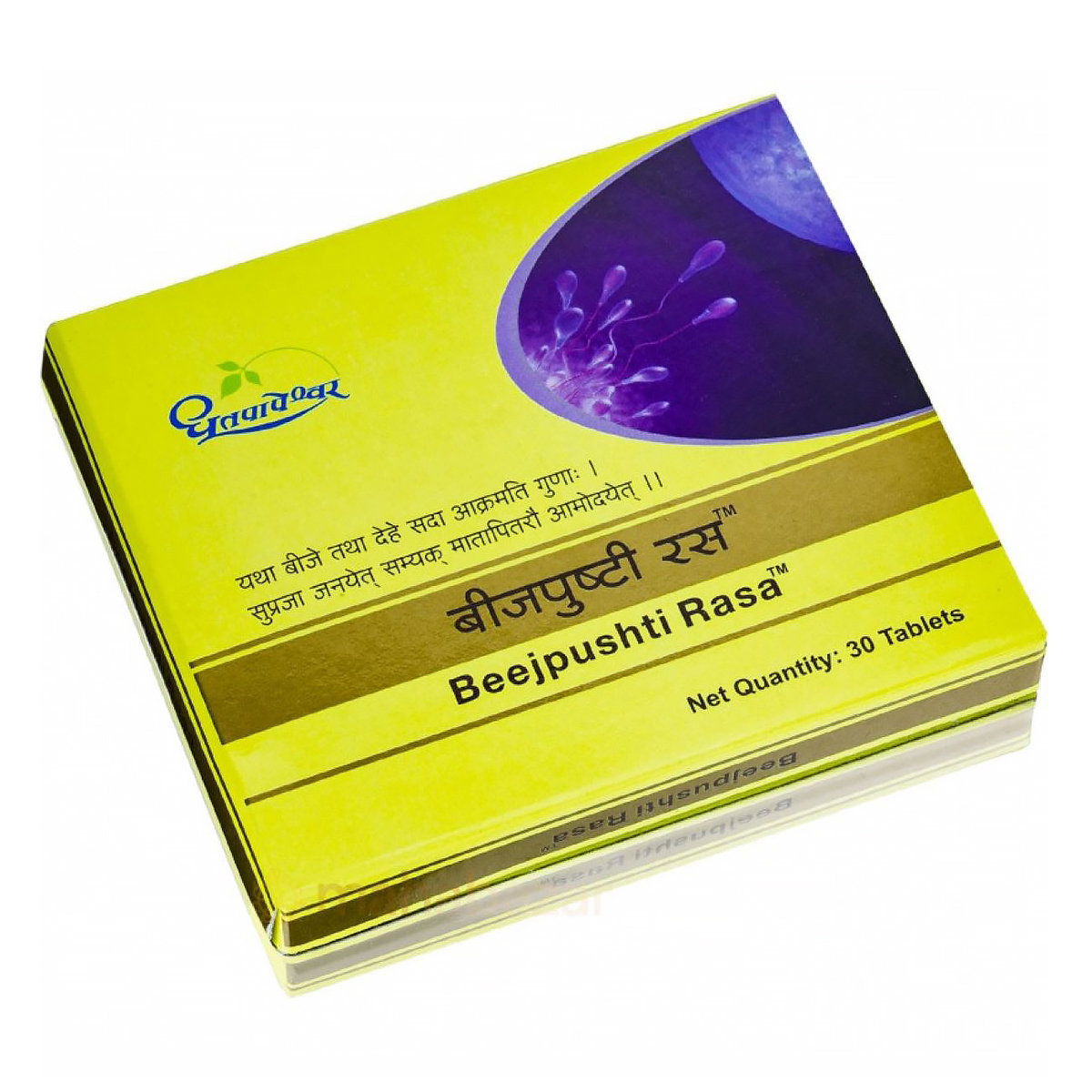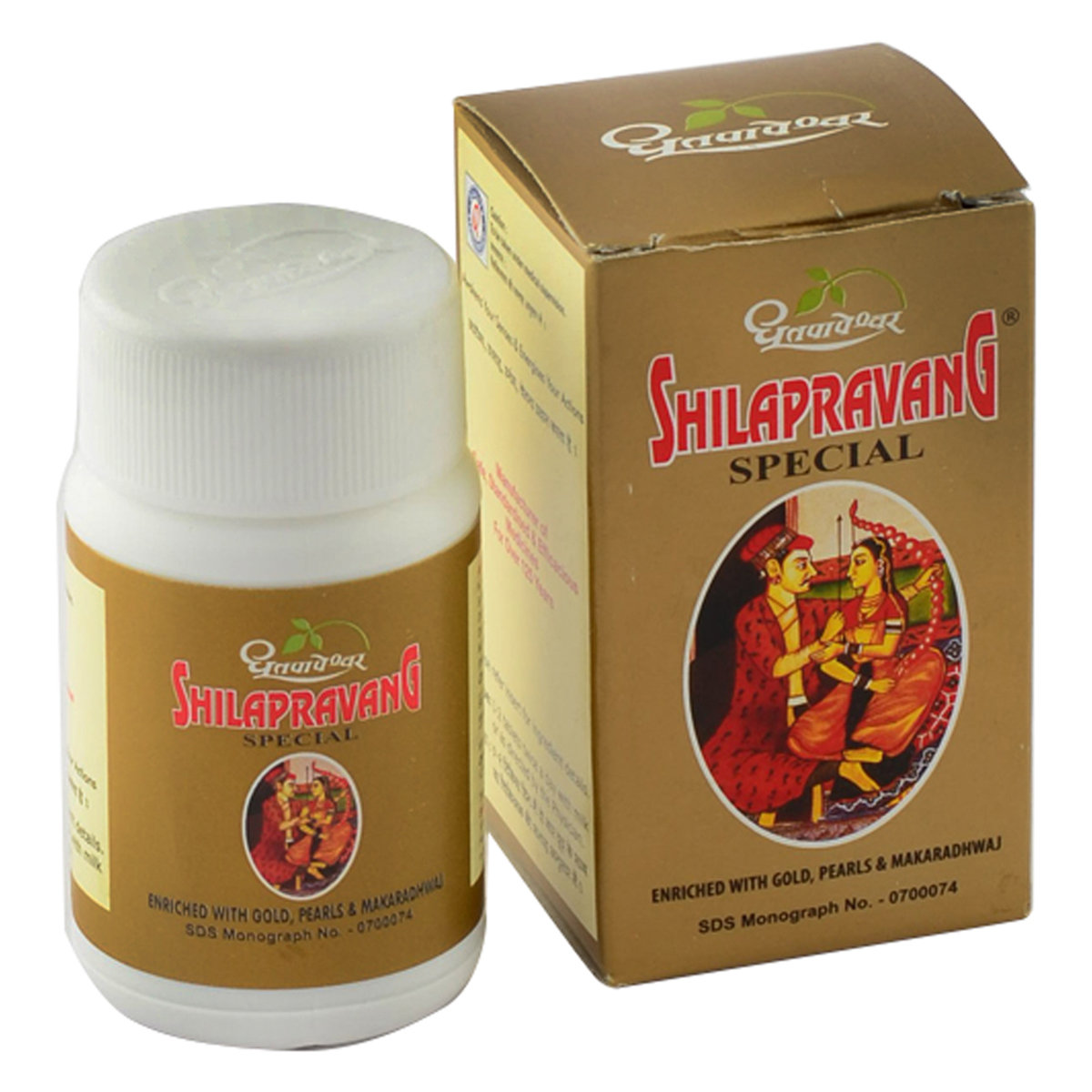ZYALFA TABLET
MRP ₹1064
(Inclusive of all Taxes)
₹127.7 Cashback (12%)
Know Your Delivery Time
Provide Delivery Location

Secure Payment

India's Most Trusted Pharmacy

Genuine Products
Composition :
Manufacturer/Marketer :
Consume Type :
Expires on or after :
Return Policy :
About ZYALFA TABLET
ZYALFA TABLET is used to treat the symptoms of benign prostatic hypertrophy. Benign prostatic hyperplasia occurs due to the non-cancerous enlargement of the prostate gland, caused by the multiplication of cells. Benign prostatic hypertrophy/hyperplasia mostly occurs in older men.
ZYALFA TABLET contains Alfuzosin that works by blocking the receptors (alpha 1) on the prostate gland, bladder and urethra (urine pipe). ZYALFA TABLET relaxes the muscles of the bladder and prostate, reducing the narrowing of the urethra.
In some cases, you may experience common side effects such as dizziness, nausea, vomiting, diarrhoea, stomach pain, headache, and dry mouth. Most of these side effects will resolve gradually over time. However, talk to your doctor if you experience these side effects persistently.
Avoid taking ZYALFA TABLET if you are allergic to it. Rise slowly from a sitting/lying position as ZYALFA TABLET may cause dizziness or weakness. ZYALFA TABLET is intended for use in men only; women should not take ZYALFA TABLET, especially pregnant or breastfeeding women. ZYALFA TABLET should not be given to children as safety and efficacy have not been established. ZYALFA TABLET may cause dizziness, so drive with caution.
Uses of ZYALFA TABLET
ZYALFA TABLET is used in the treatment of benign prostatic hyperplasia (BPH). The detailed uses of ZYALFA TABLET are as follows:
- Treats BPH (enlarged prostate) : ZYALFA TABLET helps manage symptoms of BPH in men, such as painful urination, difficulty urinating, incomplete bladder emptying, leakage of urine, and frequent or urgent need to urinate, especially at night.
- Improves Urine Flow: ZYALFA TABLET relaxes the muscles of the bladder and prostate, thereby reducing pressure on the urethra and facilitating easier urination.
- Reduces Risk of Urinary Retention (UR): ZYALFA TABLET helps lower the chances of postoperative UR after urologic surgery and reduces the need for urinary catheterisation due to acute UR.
- Delays Need for Prostate Surgery: By effectively controlling BPH symptoms, ZYALFA TABLET can delay or reduce the need for surgical intervention in some cases.

Have a query?
Directions for Use
- ZYALFA TABLET should be taken with food or as advised by a doctor.
- Take ZYALFA TABLET once daily with the same meal each day as advised by a doctor.
- Swallow it as a whole with a glass of water.
- Do not crush, chew, or break it.
Key Benefits
- ZYALFA TABLET belongs to the group of medicines called alpha-blockers.
- ZYALFA TABLET is used to treat the symptoms of an enlarged prostate (benign prostatic hyperplasia) in men.
- ZYALFA TABLET relieves the symptoms of benign prostatic hyperplasia by blocking the receptors (alpha 1) on the prostate gland, bladder and urethra (urine pipe).
- ZYALFA TABLET works by relaxing the muscles of the bladder and prostate; this reduces the narrowing of the urethra.
- It helps in relieving the symptoms of benign prostatic hyperplasia and makes it easier to pass urine.
- ZYALFA TABLET is used to treat symptoms of benign prostatic hyperplasia such as painful urination, difficulty in urination, excess urination, incomplete urination, leakage of urine, dribbling at the end of the urinary stream, and urgency in urination.
How ZYALFA TABLET Works
Storage
- Inform your doctor about the symptoms you're experiencing due to medication.
- Your doctor may adjust your treatment plan, which could include changing your medication, adding new medications, or offering advice on managing your symptoms.
- Practice good hygiene, including frequent handwashing, avoiding close contact with others, and avoiding sharing utensils or personal items.
- Stay hydrated by drinking plenty of fluids to help loosen and clear mucus from your nose, throat, and airways.
- Get plenty of rest and engage in stress-reducing activities to help your body recover. If your symptoms don't subside or worsen, consult your doctor for further guidance.
- Apply a hot/cold pack to the affected area.
- Doing gentle exercises can help cope with pain by stretching muscles.
- Get enough sleep. It helps enhance mood and lower pain sensitivity.
- Avoid alcohol, smoking and tobacco as they can increase pain.
- Follow a well-balanced meal.
- Meditation and massages may also help with pain.
- Drink water or other clear fluids.
- To prevent worsening of pain, limit intake of tea, coffee, or alcohol.
- Include bland foods like rice, toast, crackers, and rice in your diet.
- Avoid lying down immediately after eating as it may cause indigestion or heartburn.
- Avoid acidic and spicy food as it may cause indigestion.
- Take medications with food (if recommended): It can help prevent stomach distress and indigestion.
- Eat smaller, more frequent meals: Divide daily food intake into smaller, more frequent meals to ease digestion.
- Avoid trigger foods: Identify and avoid foods that trigger indigestion, such as spicy, fatty, or acidic foods.
- Stay upright after eating: Sit or stand upright for at least 1-2 hours after eating to prevent stomach acid from flowing into the oesophagus.
- Avoid carbonated drinks: Avoid drinking carbonated beverages, such as soda or beer, which can worsen indigestion.
- Manage stress: To alleviate indigestion, engage in stress-reducing activities like deep breathing exercises or meditation.
- Consult a doctor if needed: If indigestion worsens or persists, consult a healthcare professional to adjust the medication regimen or explore alternative treatments.
- Inform your doctor about your constipation symptoms. They may adjust your medication or advise alternative treatments.
- Stay hydrated by drinking sufficient of water (at least 8-10 glasses a day) to help soften stool and promote bowel movements.
- Increase fibre intake by eating foods high in fibre, such as fruits, whole grains, vegetables and legumes, to help bulk up the stool.
- Establish a bowel routine by trying to go to the bathroom at the same time each day to train your bowels.
- Engaging in regular exercise, like walking or yoga, can support in bowel movement stimulation.
- Consult your doctor if constipation persists, and discuss alternative treatments or adjustments to your medication.
- Inform your doctor about the nausea and discuss possible alternatives to the medication or adjustments to the dosage.
- Divide your daily food intake into smaller, more frequent meals to reduce nausea.
- Opt for bland, easily digestible foods like crackers, toast, plain rice, bananas, and applesauce.
- Avoid certain foods that can trigger nausea, such as fatty, greasy, spicy, and smelly foods.
- Drink plenty of fluids, such as water, clear broth, or electrolyte-rich beverages like coconut water or sports drinks.
- Use ginger (tea, ale, or candies) to help relieve nausea.
- Get adequate rest and also avoid strenuous activities that can worsen nausea.
- Talk to your doctor about taking anti-nausea medication if your nausea is severe.
- Record when your nausea occurs, what triggers it, and what provides relief to help you identify patterns and manage your symptoms more effectively.
- Quit smoking as smoking impairs erectile function by significantly damaging blood vessels.
- Maintain a healthy weight as overweight can cause erectile dysfunction.
- Exercise regularly as physical activity enhances blood flow and overall health, benefiting erectile function.
- Consume a healthy diet loaded with whole grains, fruits and vegetables.
- Limit alcohol consumption as excessive alcohol intake can impair erectile function.
- Manage stress by practicing techniques such as yoga, relaxation exercises or meditation.
- In case erectile dysfunction is due to psychological factors, consider couple counselling or sex therapy to address relationship and anxiety issues.
- Openly discuss your concerns with your partner.
What if I have taken an overdose of ZYALFA TABLET
Drug Warnings
- Do not take ZYALFA TABLET if you are allergic to any of its contents.
- Also, avoid taking ZYALFA TABLET if you are taking any other alpha-blockers, if you have postural hypotension or severe liver problems.
- Inform your doctor if you have angina, urinary tract infections or crystals in the formed water, high blood pressure, circulatory problems, heart problems; if you are due to undergo any surgery that requires anaesthesia; if you are older than 65years or if you get painful erections before or during the treatment that will not go away.
- Talk to your doctor before taking ZYALFA TABLET if you are undergoing eye surgery.
- ZYALFA TABLET is intended for use in men only; women should not take ZYALFA TABLET, especially those who are pregnant or breastfeeding.
- ZYALFA TABLET should not be given to children as safety and efficacy have not been established.
- ZYALFA TABLET may cause dizziness, so drive with caution.
- Avoid or limit alcohol consumption with ZYALFA TABLET as it could lead to increased dizziness.
- Rise slowly from a sitting/lying position as ZYALFA TABLET can cause dizziness or weakness.
Drug-Drug Interactions
Drug-Drug Interactions
Login/Sign Up
Concomitant use of Zyalfa Tablet with Atazanavir can increase the risk of low blood pressure.
How to manage the interaction:
Coadministration of Zyalfa Tablet with Atazanavir is not recommended, however, it can be taken if your doctor has advised it. Contact your doctor immediately if you experience dizziness, palpitations, difficulty swallowing, or sweating. It is recommended to monitor your blood pressure regularly. Do not discontinue any medications without first consulting your doctor.
When Zyalfa Tablet and Clarithromycin can increase the risk or severity of side effects like low blood pressure or irregular heart rates.
How to manage the interaction:
Taking clarithromycin with Zyalfa Tablet is not recommended as it can result in an interaction; it should be taken only if your doctor has advised it. However, if you experience dizziness, headache, palpitations, or chest discomfort, contact your doctor immediately. Do not discontinue any medications without consulting a doctor.
Taking Zyalfa Tablet with halofantrine can increase the risk or severity of irregular heart rhythms. The risk increases in patients with a history of heart illness or electrolyte imbalance.
How to manage the interaction:
Taking Zyalfa Tablet and halofantrine together is generally avoided as it can result in an interaction. It can be taken if your doctor has advised it. However, if you experience sudden dizziness, lightheadedness, fainting, shortness of breath, chest pain or tightness, or a rapid heartbeat, contact your doctor immediately. Do not discontinue any medications without consulting a doctor.
Taking Telaprevir with Zyalfa Tablet can increase the blood levels and effects of Zyalfa Tablet. This can increase the risk or severity of low blood pressure.
How to manage the interaction:
Taking Telaprevir with Zyalfa Tablet is not recommended as it can possibly result in an interaction, it can be taken only if your doctor has advised it. However, if you experience sudden dizziness, lightheadedness, fainting, shortness of breath, chest pain or tightness, rapid heartbeat, or memory loss, contact your doctor immediately. Do not discontinue any medications without consulting a doctor.
Using Zyalfa Tablet together with voriconazole may significantly increase the blood levels and effects of Zyalfa Tablet.
How to manage the interaction:
Taking Voriconazole with Zyalfa Tablet is not recommended, please consult a doctor before taking it. Call a doctor if you experience dizziness, headache, nasal congestion, or heart palpitation. Do not stop using any medications without talking to a doctor.
Coadministration of Zyalfa Tablet and ceritinib can increase the risk of developing side effects.
How to manage the interaction:
Taking Ceritinib with Zyalfa Tablet is not recommended as it can result in an interaction; it should be taken only if your doctor has advised it. However, if you experience dizziness, headache, palpitations, contact your doctor immediately. Do not discontinue any medications without consulting a doctor.
Using Zyalfa Tablet together with ketoconazole may significantly increase the blood levels of Zyalfa Tablet, which may result in side effects.
How to manage the interaction:
Taking Zyalfa Tablet with Ketoconazole is not recommended as it can result in an interaction, it can be taken if your doctor has advised it. However, if you experience fainting, headache, flushing, nasal congestion, or heart palpitation, contact a doctor immediately. Do not discontinue any medications without consulting a doctor.
When Zyalfa Tablet and Tipranavir are taken together, the body's ability to break down Zyalfa Tablet may be reduced. This increases the risk and severity of side effects.
How to manage the interaction:
Taking Zyalfa Tablet with Tipranavir is not recommended as it can possibly result in an interaction. It should be taken only when advised by a doctor. However, if you experience symptoms like severe dizziness, fainting, fast/irregular heartbeat, chest pain, fast or irregular heartbeat, nausea, or sweating contact a doctor immediately. Do not discontinue any medications without consulting a doctor.
When Idelalisib is taken with Zyalfa Tablet, it can lower the metabolism of Zyalfa Tablet. This can increase the risk or severity of side effects like low blood pressure.
How to manage the interaction:
Taking Zyalfa Tablet with Idelalisib is not recommended as it can possibly result in an interaction, it should be taken only if your doctor has advised it. However, if you experience dizziness, lightheadedness, fainting, headache, flushing, nasal congestion, heart palpitation, and priapism (prolonged and painful erection), contact your doctor immediately. Do not discontinue any medications without consulting a doctor.
Coadministration of Dronedarone with Zyalfa Tablet can increase the risk or severity of irregular heart rhythms. The risk increases in patients with a history of heart illness or electrolyte imbalance.
How to manage the interaction:
Taking Dronedarone with Zyalfa Tablet together is not recommended, as it leads to an interaction, it can be taken if your doctor has advised it. However, if you experience dizziness, shortness of breath, chest discomfort, or palpitations, contact your doctor immediately. Do not discontinue any medications without consulting a doctor.
Drug-Food Interactions
Drug-Food Interactions
Login/Sign Up
Diet & Lifestyle Advise
- Urinate as soon as you feel the urge.
- Avoid excess caffeine and alcohol consumption.
- Maintain a healthy diet and exercise regularly.
- Practice kegel exercises to strengthen pelvic muscles.
- Reduce stress levels by doing yoga or meditation. Nervousness can increase the frequency of urination.
Habit Forming
Therapeutic Class
All Substitutes & Brand Comparisons
RX
Out of StockAlfufast Tablet 10's
Leeford Healthcare Ltd
₹60
(₹6.0 per unit)
93% CHEAPERRX
Alfman 10 mg Tablet 10's
Hetero Drugs Ltd
₹125
(₹11.25 per unit)
87% CHEAPERRX
Alfugress Tablet 10's
La Renon Healthcare Pvt Ltd
₹128
(₹11.52 per unit)
87% CHEAPER
Alcohol
Safe if prescribed
You are recommended to avoid or limit alcohol consumption while taking ZYALFA TABLET as it may cause increased dizziness.
Pregnancy
Consult your doctor
ZYALFA TABLET belongs to pregnancy category B. ZYALFA TABLET is intended for use in men only; women should not take ZYALFA TABLET, especially pregnant women.
Breast Feeding
Consult your doctor
ZYALFA TABLET is intended for use in men only; women should not take ZYALFA TABLET.
Driving
Safe if prescribed
ZYALFA TABLET may cause dizziness. Do not drive or operate machinery unless you are alert.
Liver
Consult your doctor
ZYALFA TABLET should not be used if you have moderate to severe liver impairment. The safety of ZYALFA TABLET in patients with mild hepatic impairment has not been established. Please consult your doctor if you have a liver impairment or any concerns regarding this.
Kidney
Consult your doctor
Please consult your doctor if you have kidney impairment or any concerns regarding this.
Children
Safe if prescribed
ZYALFA TABLET should not be given to children as safety and efficacy have not been established.
Heart
Limited information is available; please consult your doctor.
Geriatrics
Consult your doctor
Limited information available for use of ZYALFA TABLET in elderly patients. Please consult your doctor.
FAQs
ZYALFA TABLET is used to treat the symptoms of benign prostatic hypertrophy.
ZYALFA TABLET works by relaxing the muscles of the bladder and prostate; this reduces the narrowing of the urethra. It thereby helps in relieving the symptoms of benign prostatic hyperplasia and makes it easier to pass urine.
Dry mouth could be a side effect of ZYALFA TABLET. Limiting caffeine intake, avoiding smoking and mouthwashes containing alcohol, drinking water regularly, and chewing sugar-free gum/candy may help stimulate saliva and thereby prevent mouth dryness.
Diarrhoea might be a side-effect of ZYALFA TABLET. Drink lots of fluids and eat non-spicy food if you experience diarrhoea. If you find blood in stools (tarry stools) or if you experience severe diarrhoea, consult your doctor. Do not take anti-diarrheal medicine on your own.
Orthostatic hypotension, also known as postural hypotension, could be a side-effect of ZYALFA TABLET. Postural hypotension is a sudden lowering in blood pressure leading to dizziness on standing. If you experience this, do not try to stand up suddenly or start walking, instead, lie down and get up slowly only when you feel better.
Talk to your doctor before taking ZYALFA TABLET with anti-fungal medicines such as ketoconazole and itraconazole, and antiretroviral medicines such as ritonavir, as they might increase the blood levels of ZYALFA TABLET.
Prostatic carcinoma is the cancer of the prostate gland, whereas benign prostatic hyperplasia is the non-cancerous growth of the prostate. Prostatic carcinoma and benign prostatic hyperplasia may have the same symptoms. Therefore, people with benign prostatic hyperplasia should be examined prior to starting the treatment with ZYALFA TABLET to rule out the presence of carcinoma of the prostate.
If you are due to have or are undergoing cataract surgery, inform the doctor that you are taking ZYALFA TABLET. This will help the doctor manage the complications in advance, which could occur during the surgery.
Consult your doctor before taking ZYALFA TABLET with nitrates. Taking ZYALFA TABLET with medicines used to treat angina/chest pain, such as nitrates (nitroglycerin, glyceryl trinitrate), may cause severe lowering of blood pressure.
You are advised to take ZYALFA TABLET for as long as your doctor has prescribed it for you, depending on your medical condition.
Yes, dizziness is a possible side effect of ZYALFA TABLET. If you experience it, rise slowly from a sitting or lying position and notify your doctor if the symptoms are severe or persistent.
ZYALFA TABLET does not shrink the prostate. It belongs to the alpha-blocker class of drugs. It works by relaxing muscles in the bladder and prostate, allowing urine to flow more freely.
No, ZYALFA TABLET will not cause erectile dysfunction.
It is typically taken once a day, immediately after meals. The dose and duration should be followed as directed by the physician.
ZYALFA TABLET should not be used if you have moderate to severe liver impairment. The safety of ZYALFA TABLET in patients with mild hepatic impairment has not been established. Please consult your doctor if you have a liver impairment or any concerns regarding this.
Yes, aged or elderly people can take ZYALFA TABLET, but they must exercise caution. Regular monitoring is essential.
While rare, ZYALFA TABLET can occasionally cause abnormal vision. Importantly, if you're scheduled for any eye surgery, including cataract surgery, inform your surgeon about your use of ZYALFA TABLET. This medication may require special considerations during the procedure
If you're taking ZYALFA TABLET and also plan to use sildenafil or vardenafil, don't do it without talking to your doctor first. Taking them together can cause your blood pressure to drop too low, which can be dangerous.
To help feel better while taking ZYALFA TABLET, follow your doctor's instructions, drink lots of water, avoid alcohol, eat healthy, get enough sleep, and tell your doctor if you have any new problems.
Common side effects of ZYALFA TABLET may include dizziness, nausea, vomiting, diarrhoea, stomach pain, headache, and dry mouth.
Country of origin
Manufacturer/Marketer address
Disclaimer
Author Details
We provide you with authentic, trustworthy and relevant information




